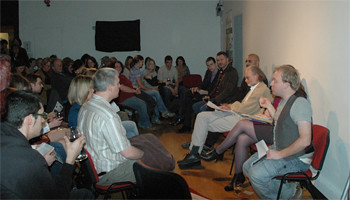Below are some questions and answers about the concept of 'Lucid Dreaming' written by Professor Mark Blagrove from the School of Human Sciences at Swansea University and relates to our sciSCREENing of Inception in August. What is a lucid dream? It is a dream in which you realise that you are dreaming. How often do they occur? In about 1 in every 200 dreams. How do we know people are really asleep when they have a lucid dream, they could be just half awake and drowsy? You can signal with your eyes from a lucid dream, and monitoring of sleep shows that sleep at this point is in the stage called Rapid Eye Movement sleep. However, there is recent debate about this. Does time pass differently in a dream compared to when doing the same things when awake? No. Can you have dreams within dreams, in that you dream that you have woken up from a dream while still being in a dream? Yes, this is called a false awakening. Do frequent video gamers have more lucid dreamers? Yes, recent research says they do, but the explanation for this is currently disputed. Is there any scientific reason to study lucid dreams? Yes, seeing what happens to the brain as you become self-aware during a dream may tell us what is the neural basis of consciousness. Are there particular personality types who have lucid dreams? Yes, but as it appears that the incidence of lucid dreaming has increased over the last few decades the most important factor in determining whether one has such dreams is to know that they can happen. Does spotting some incongruity or bizarreness in a dream cause you to become lucid? It can do so, but usually we don’t question such incongruities during a dream, and most lucid dreams occur spontaneously, without any obvious cause within the dream. Mark Blagrove is a Professor of Psychology at Swansea University, where he runs a sleep lab and investigates sleep, dreaming, lucid dreaming and nightmares. He is on the editorial board of the academic journal 'Dreaming', and the 'International Journal of Dream Research', and is a past-president and current board member of the International Association for the Study of Dreams (asdreams.org), which is the main organisation worldwide for people with an academic, professional, artistic or personal interest in dreaming.
Friday, 12 November 2010
Subscribe to:
Post Comments (Atom)








No comments:
Post a Comment